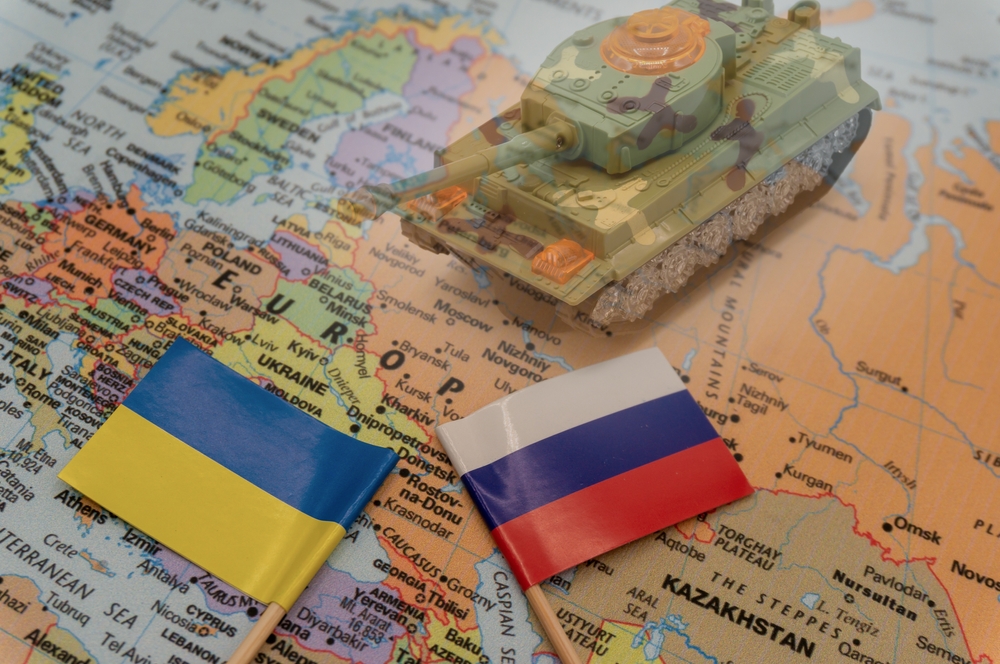It was to be expected that the war in Ukraine would have an impact far beyond its immediate region. Experts anticipated such an impact on the Middle East, including for example, General Eric Corella, who noted, when candidate for Chief of the US Central Command, in a Senate hearing on February 9th, 2019, that if Russia invaded Ukraine, it could lead to broader instability in the Middle East, including Syria.
The war in Ukraine led to global distraction from crises in the Arab world, while many citizens of regional countries became stranded in Ukraine and neighboring countries. Moreover, the impact on wheat and grain exports from both Ukraine and Russia has serious implications for several countries in the Middle East who are significant importers of these commodities. This is also likely to exacerbate food crises in countries suffering armed conflicts, especially Yemen. The War will negatively impact revenues from tourism to the region, although a rise in oil prices in global markets will enhance the resources of oil-exporting countries.
The relative global distraction from Arab crises: One of the possible effects of the Ukraine war is the likely decline of international engagement in developments regarding Libya, Yemen, and Syria. In Syria, for example, it is expected that the Syrian regular army forces will maintain the security of the areas over which they regained control during the seven years of Russian support. Syrian President Bashar al-Assad expressed his support to the Russian position in a phone call with Russian President Vladimir Putin on February 24th, following the launch of the military operation. Assad declared that the operations represented that “a correction of history and a restoration of balance to the world that it lost after the dissolution of the Soviet Union.” Al-Assad blamed Western countries for “chaos and bloodshed” as a result of their policies, and “support of terrorists in Syria and the Nazis in Ukraine.” Assad is likely to continue the strategy of gradual territorial gains, which has been a proven Russian approach.
Stranded citizens: As a result of the conflict, students, tourists and other citizens from several Arab countries, including Syria, Egypt, Morocco, Libya, Iraq, Jordan, Lebanon, Algeria, Tunisia, have been stranded in Ukraine or its neighboring countries. The distress calls by stranded Arab citizens on social media since the beginning of the conflict reflect their dire circumstances. It will require governments to coordinate efforts to organize moving these citizens away from dangerous areas, and to establish safe routes to move them into neighboring countries, and eventually return them to their home countries.
Impact on food security: Russia and Ukraine are among the largest grain exporters worldwide, and the largest part of their exports go to the Middle East. There are expectations that some of the region’s imports from these countries are likely to be disrupted. Moreover, the war has led some countries to restrict exports of grains, to ensure the needs of their own domestic markets, and the prices of grain on international markets has soared. This will place added burdens on importing countries to find alternative sources of grain, at much higher prices.
Deteriorating humanitarian crises in conflict zones: The humanitarian crisis in Yemen will gravely deteriorate, as the country is almost completely dependent on imports from abroad to secure grain supplies. The World Food Program warned in its report of February 3rd that the war in Ukraine will most likely lead to an increase in food and fuel prices in Yemen. The country has already been classified as the worst humanitarian disaster by international institutions. The World Food Program has announced it was forced to reduce food rations for eight million people as a result of declining international financial support. Yemen needs nearly USD 800 million over the next six months to provide full assistance to 13 million people.
The war in Ukraine is likely to make matters worse. In a recent report, the World Food Program said: “We have no choice but to feed the starving at the expense of the hungry.” Unless urgent funding is found, the report continues, in a few weeks the organization may not be able to do even that. “That will be like hell on earth.”
Rising energy prices in global markets: Oil-exporting countries are likely to profit from the rise in oil prices to over USD 100 a barrel, for the first time since 2014. This serves to increase the financial resources available to these countries, after years of energy market turmoil. Moreover, the effort to find alternative sources of energy for European countries dependent on imports from Russia, provides a window of opportunity for some Arab countries, such as Egypt. Egypt can contribute to securing Europe’s gas supplies, which would bolster its ambitions to become a regional energy hub in the eastern Mediterranean.
Declining tourism: The war in Ukraine is likely to reduce tourism from Europe as a whole, but particularly from Ukraine and Russia, which constitute a significant part of the regional tourism market. This will have adverse economic consequences for several regional countries, whose national income id heavily dependent on tourism revenues, such as Egypt, Lebanon, Tunisia, and Turkey.
In sum, there are likely to be are far-reaching effects of the ongoing war in Ukraine, whereby ongoing conflicts in Libya, Yemen, and Syria, will be ignored and therefore will possibly deteriorate. Moreover, food security will be severely impacted as important staples, such as wheat, corn, barley, and edible oils, become more scarce and more expensive. Reduced revenues from tourism will significantly impact government budgets in several regional countries. That said, there is a windows of opportunity for the countries of the region to exploit Europe’s efforts to find new sources of natural gas, and move to increase their financial resources and enter the European gas market.
On the political level, the most significant impact of the war in Ukraine is the impact of the growing polarization on the international scene. This was expressed by Iraqi Foreign Minister Fouad Hussein in his interview with the Al-Sharq al-Awsat newspaper on February 26th, as he anticipated Arab countries will have to deal with an international environment in which they are forced to choose sides, “you’re either with me or against me.”


